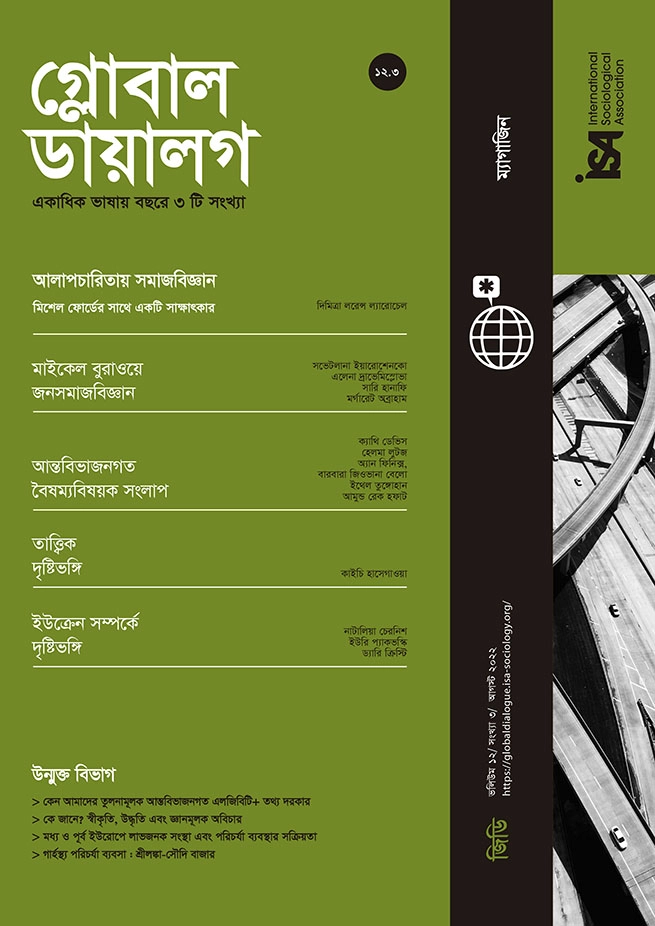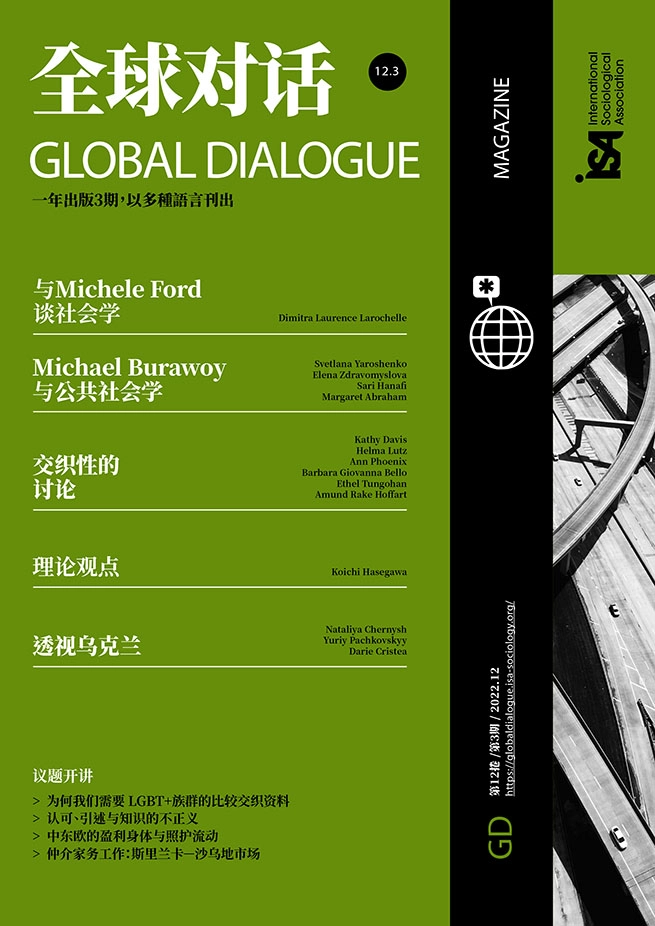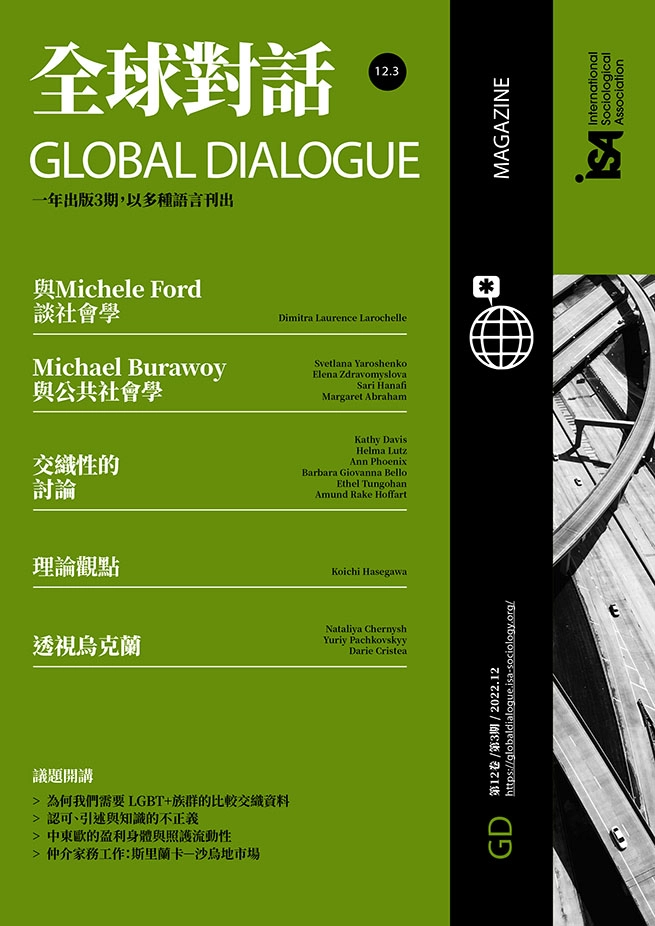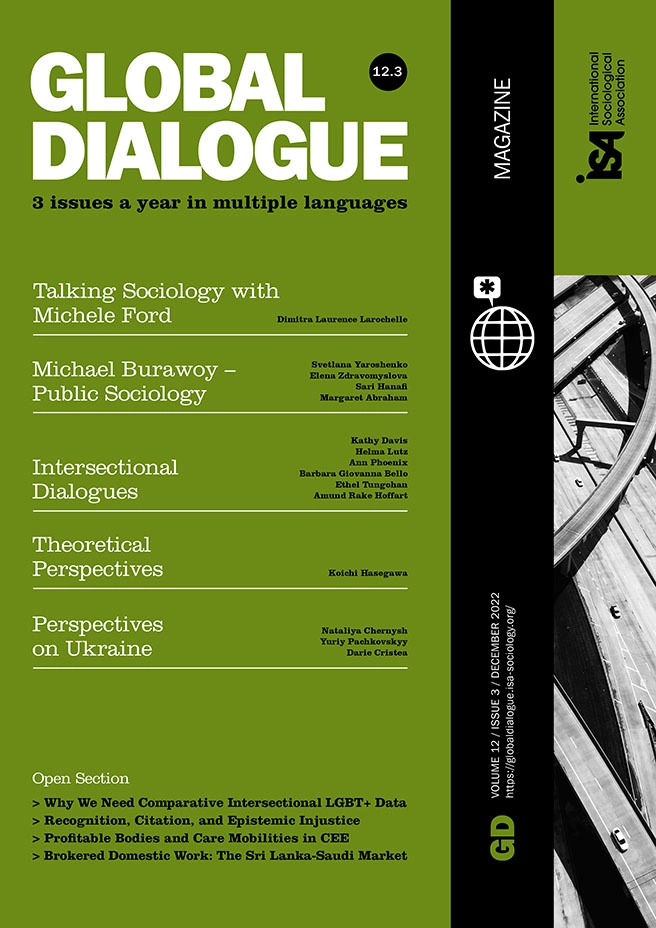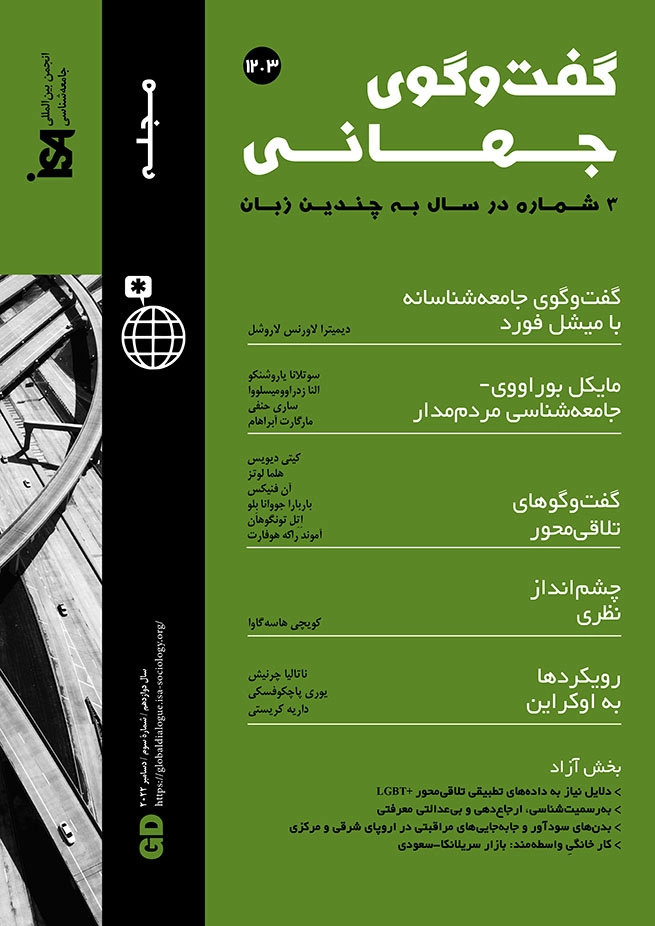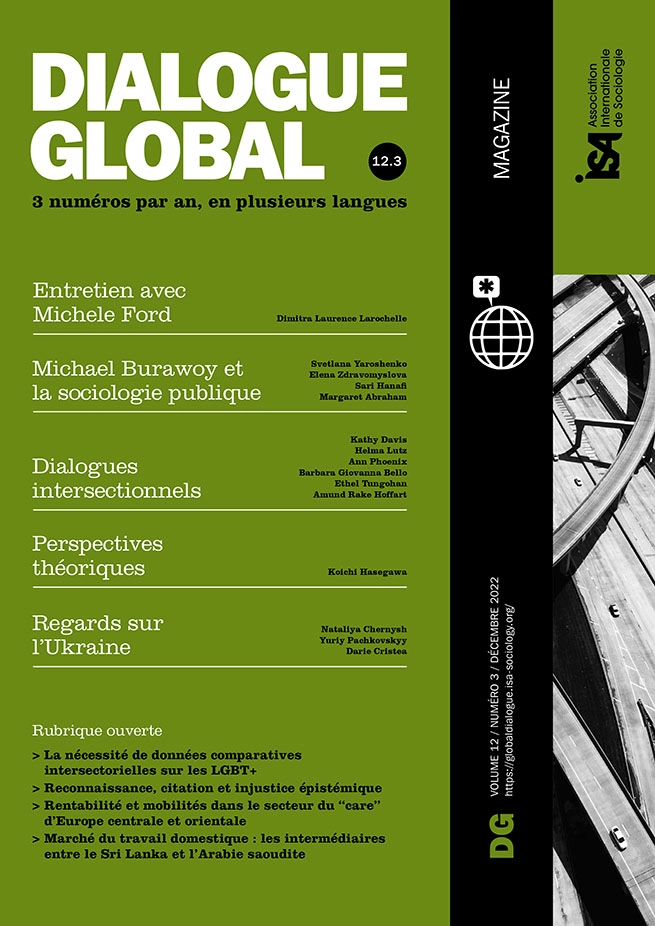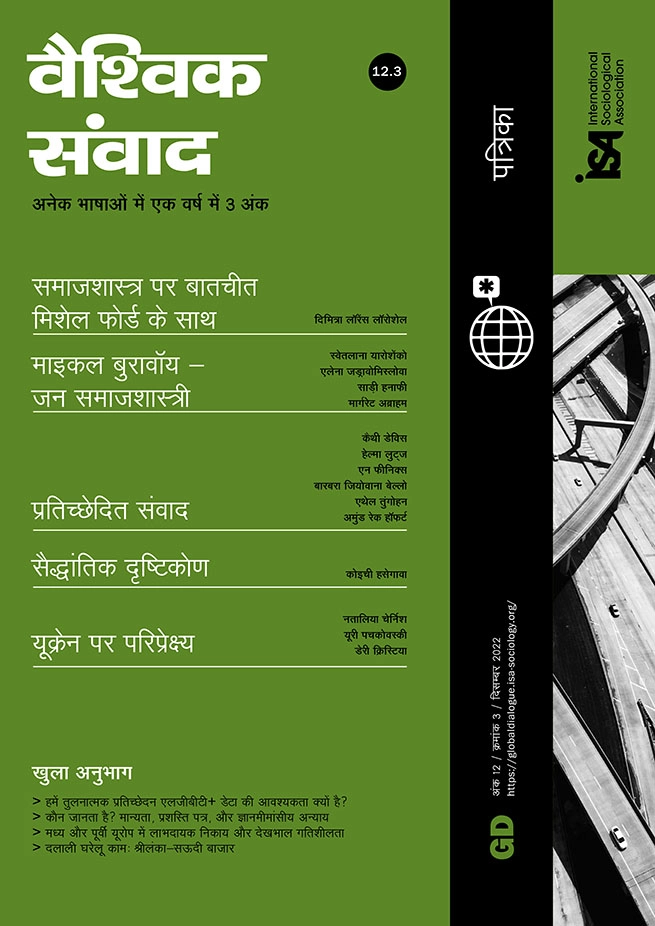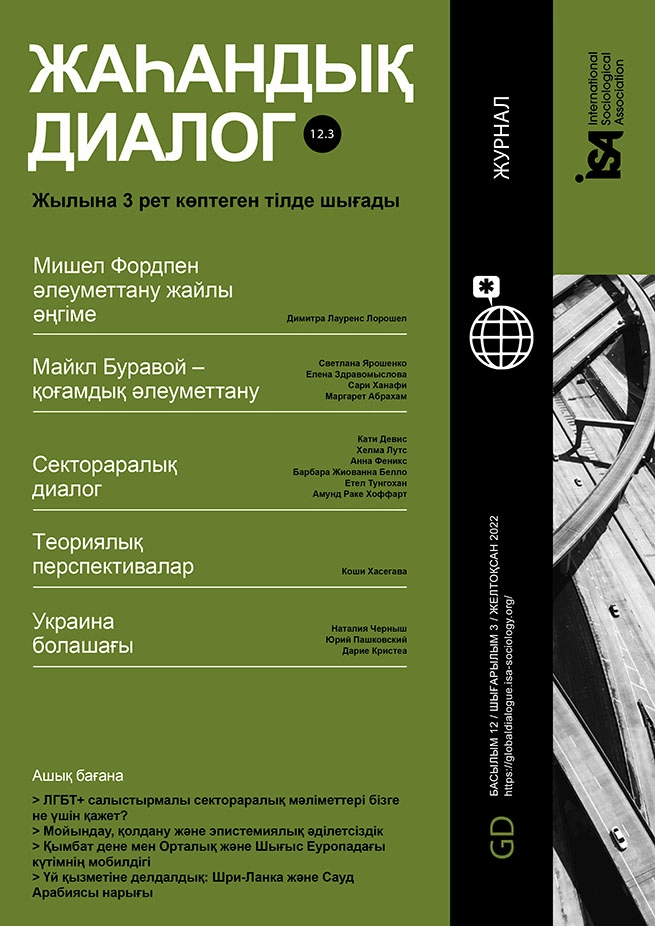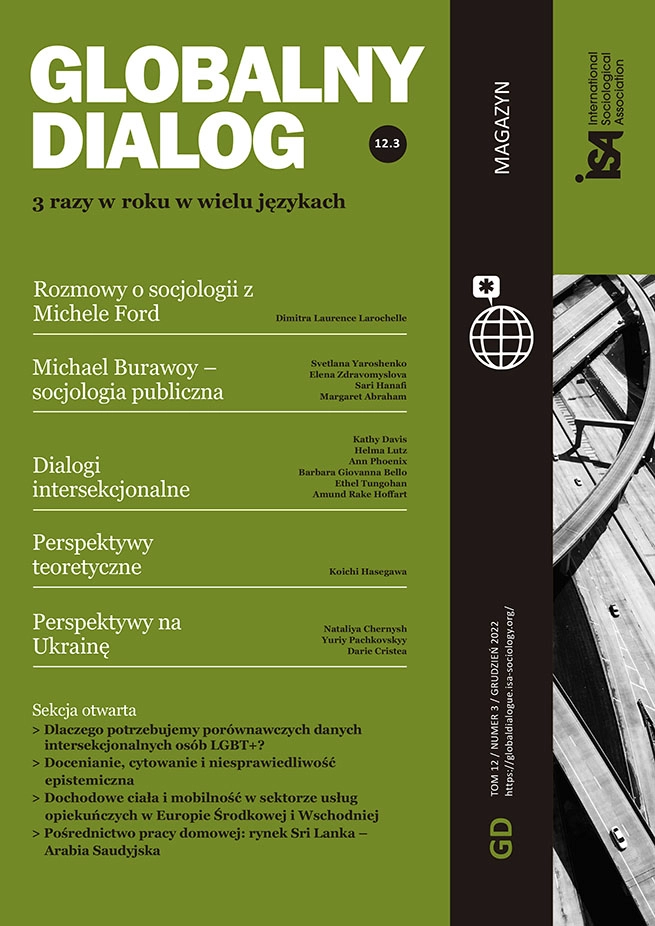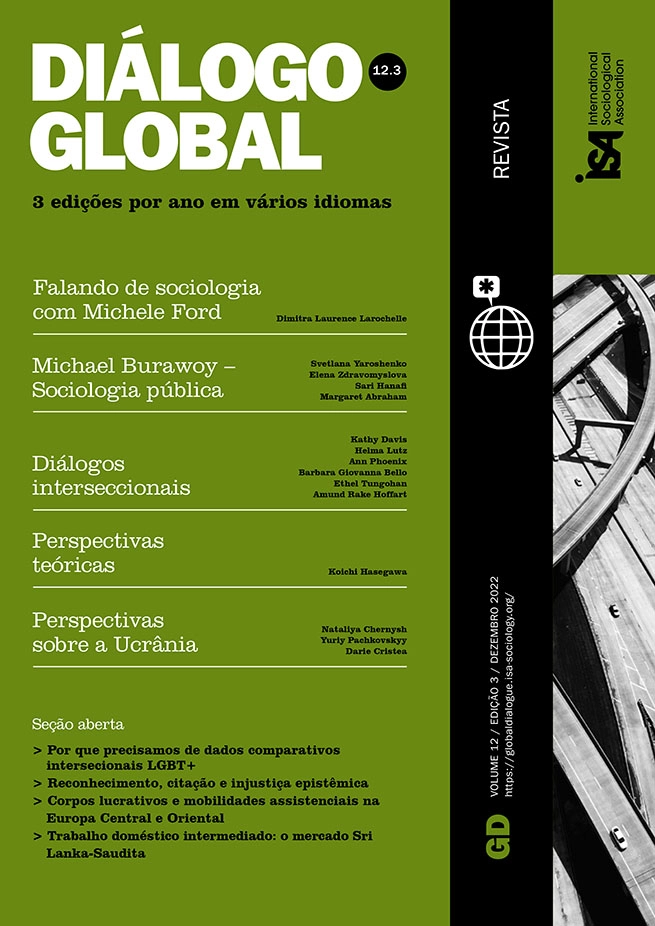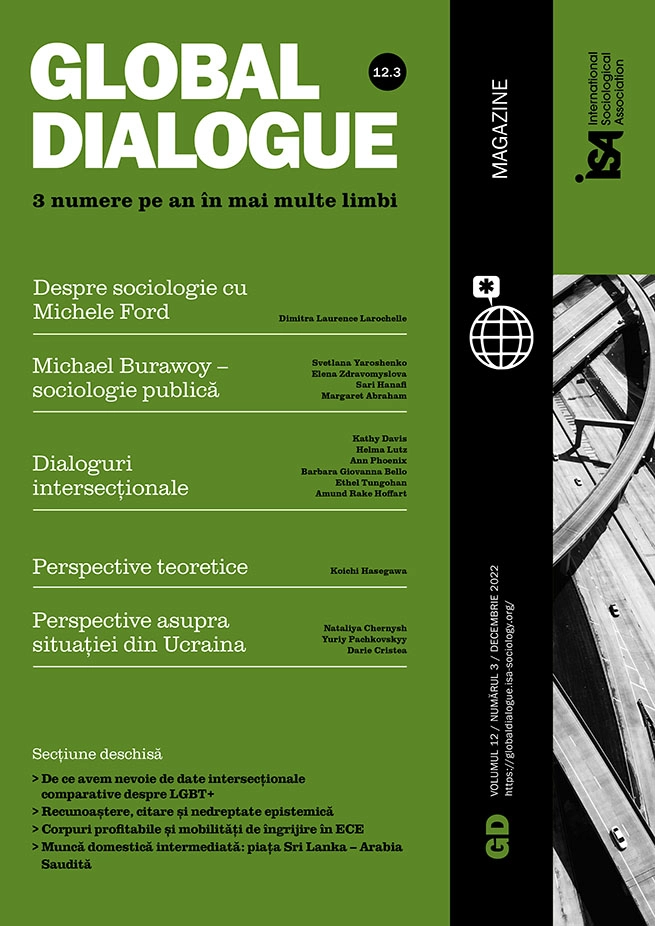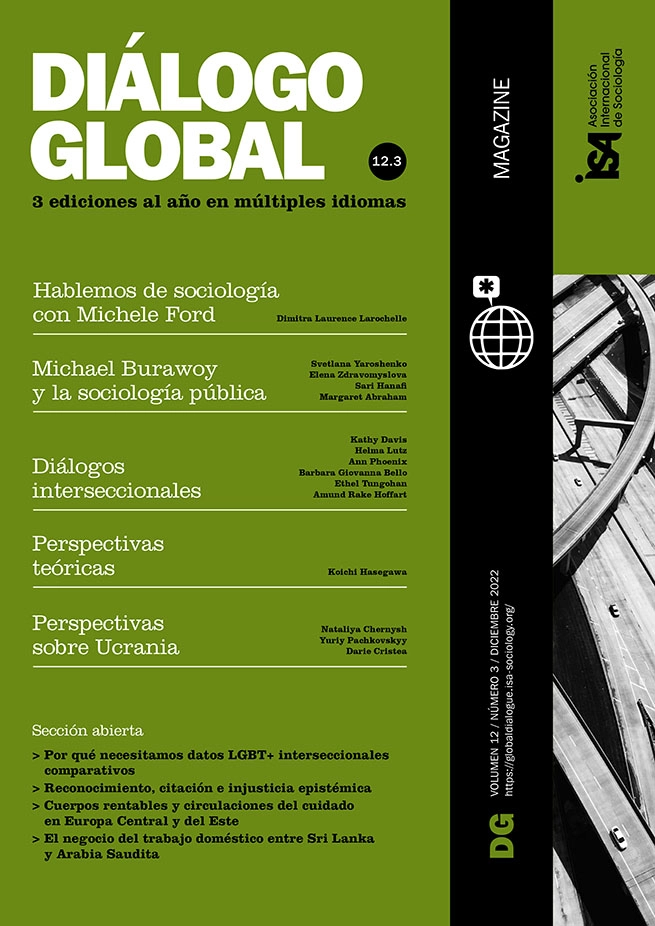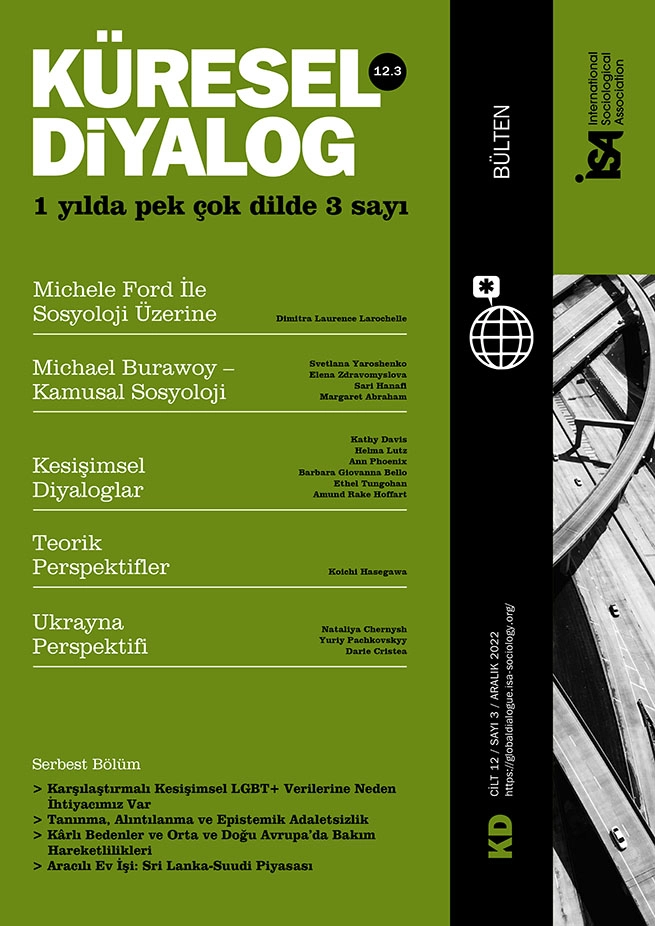Read more about Perspectives on Ukraine

Collective and Individual Trauma
by Yuriy Pachkovskyy
The War in Ukraine Changes What We Thought We Knew
by Darie Cristea
October 14, 2022
In my speech at the III Congress of the Sociological Association of Ukraine[1], I identified four stages in the development of sociological thought in the context of globalization. Structurally, each stage has seven components, which I consider of primary importance for understanding its specifics and determining general development trends: the nature of sociology at a particular time, its defining features, its basic concepts, its central themes, its major functions, its dominant feature, and the main methods employed in empirical research.
The sociology of globalization
Stage I: sociology before globalization (from the beginnings of sociology up until 1985), when the first sociological works in this field appeared. Sociology was then considered the science of society; its abstract ideal was a Western-type society within its territorial and nation-state borders. In 2000, U. Beck called this “container” sociology. This is the period of the formation of the sociological canon.
Stage II (1985-2002): sociology of the era of the deployment of powerful globalization processes; thus, sociology becomes a science of humanity, which is globalized following the Western model in the form of Westernization, more specifically, Americanization (even more specifically, McDonaldization). That is why P. Berger calls the Americans the main globalizers. At this stage, the formation of the sociological canon continues.
Stage III (2002-2016): sociology of the era of multiple globalizations (the emergence of easternization, alternative globalizations, etc.). That is, a global sociology is being formed, which is becoming a science of humanity globalized in various ways. In it, the local acquires the right to exist, and representatives of different national schools gain the opportunity to participate in sociological dialogue along with representatives of the “rich sociological North,” as M. Burawoy called it in 2008. Accordingly, there is a rapid expansion of the number of sociological works outside the sociological canon.
Stage IV (2016 - present): sociology of the post-globalization era, as there is a reduction of globalization processes and strengthening of the centrifugal forces of regionalization in the world. (Note that I use the term “post-globalization” by analogy with D. Bell’s term “post-industrial” in relation to the type of society that replaces industrial society, but preserves pre-industrial and industrial sectors.) Therefore, the sociology of this period increasingly becomes a science of fragmented humanity with the multiplication of regional formations. The corpus of works of a canonical and non-canonical character is formed with dialogical features and intensification of interdisciplinarity.
Where the sociology of globalization stands now
This fourth stage does not signify the disappearance of globalization processes as such and the decline of the sociology of globalization. Rather, new sociocultural realities are emerging and another reconfiguration of sociological knowledge is taking place, with a relative decrease in the share of globalization scenarios. For example, the emergence of the COVID-19 pandemic has in many cases led to the collapse of global ties and relations, the reappearance of borders, or a decrease in the range of transnational entities and processes, which is reflected in the works of a growing number of sociologists.
This post-globalization period takes on a new identity during the Russian–Ukrainian war. Today we are witnessing the birth of a new kind of world order, which can be pictured as the reincarnation of the West (now in the form of the so-called “united collective West”) with its heart in Ukraine. That is to say, in my opinion, today there is no opposition between global and local, and no transformation of local into global. There is an ingrowth of the local into the global, where the local becomes the core of the global. In other words, there is a new type of global–local formation, with the supremacy of universal values embodied in the struggle for those values in the non-Western world; in this case, Ukraine. New global social movements are emerging, first of all a movement expressing solidarity with Ukraine. Their peculiarity is their extremely powerful influence on governments and a shortening of time for making decisions. New regional alliances are beginning to play a special role, sometimes between countries with which there are no common borders (I mean the so-called “small alliances” such as Great Britain–Ukraine–Poland or the Associated Trio: Ukraine–Moldova–Georgia).
Of course, these processes also require sociological reflections and discussions, dialogue between representatives of different national schools and movements. For example, the Russian–Ukrainian war is already gaining sociological meaning. I am referring to a letter from the President of the ISA, Sari Hanafi, describing Putin’s imperial paradigm and highlighting four lessons from this war for the Middle East. In general, I agree with many of the theses in that text, but at the same time I do not consider it correct to directly compare the wars in the Middle East with the current war in Ukraine, where genocide of the Ukrainian people is taking place. Every war is terrible, but Russia’s aggression against Ukraine poses a threat not only to Ukraine itself, but to many other countries in the world, if we do not work together to destroy a regime based on the imperial paradigm.
Where sociology is heading
Now, we can establish the tendencies of present-day sociology according to the substance of the stages I have laid out here. A tentative list could include the following 10 notions:
(1) the rapid broadening of the boundaries of sociology, its subject matter and object of study as a result of the permeation of the canonical spheres of interest of the discipline as well as the introduction into the field of sociological reflections of phenomena related to artificial reality (virtual reality, augmented reality, artificial intelligence, etc.);
(2) the development and nurturing of a multi-dimensional and polyfunctional sociological reflexivity of a hybrid nature which is up to the task of producing concepts and models of sophisticated self-regulating systems of global, regional, or local proportions with an array of possibilities for their implementation in social practice;
(3) the shift from interdisciplinarity to transdisciplinarity and the appearance of an appropriate type of metatheorizing based on transdisciplinary syncretism and holistic thinking;
(4) an increase in the significance and importance of the conceptualization of regional development projects as well as the issues of the coexistence of local, glocal, global, non-global, and post-global processes and phenomena;
(5) a significant sophistication of the terminology reflected in an increase of the number of hybrid terms stemming from the social and natural sciences, as well as technology and the humanities, accompanied by a synthesis of notions of postclassical and post-non-classical sociology;
(6) the shift of sociologists’ attention from mostly static to predominantly dynamic and even reactive societal transformations;
(7) the rising significance of the study of complex (predominantly non-material) social inequality with special attention on new forms of inequality embodied in social tension as well as new types of conflicts around opposing interests and values;
(8) the rising significance of the theoretical and cognitive functions of modern sociology under the conditions of hyperergia (or hyperdynamism) and reactive social transformations as well as the humanistic function due to the increasing dehumanization brought about by the continued introduction of new technologies and current hybrid wars;
(9) a diversification of the methods and techniques used in sociological scholarship through the use of newly synthesized and modified quantitative and qualitative methodologies as well as the adoption of methods from other disciplines. Their combined effect enables sociologists to obtain rapid and valid social results;
(10) the shift from verbal and non-verbal methods of sociological scholarship to the use of digital technologies, etc.
[1] Nataliya Chernysh (October 2017) “Sociology today – Trends and perspectives for development” http://stmm.in.ua/archive/ukr/2017-4/4.pdf (in Russian).
Nataliya Chernysh, Ivan Franko Lviv National University, Ukraine <nchernysh@gmail.com>
This issue is not available yet in this language.
Request to be notified when the issue is available in your language.
If you prefer, you can access previous issues available in your language:

